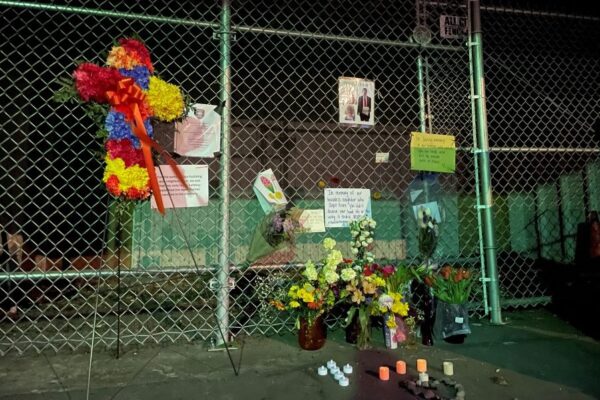Avoiding Homelessness and Getting Life Back on Track
Sara, a mother of two young children, ended an unhealthy, 11-year-long relationship in mid-2019 because she worried about what living in that situation would do to her kids if she stayed with her ex-partner.
“I did not want my children to grow up seeing that and thinking that that was okay,” said Sara.
After she moved out, she stayed at a friend’s house, but she needed a permanent home.
“I was lost. I had no idea what I was going to do, where I was going to go,” Sara said. “I was trying to get custody of my kids. And I didn’t know how I was going to prove to a court that I had a stable place for them to go. Their dad didn’t care if I lived in my truck.”
Sara went to Vine Maple Place, a United Way of King County partner that works to rapidly find homes for families that are in unstable housing—whether living in a car, or a tent, or “couch-surfing,” as Sara was.
Sara registered with the organization, but to get a lease, she needed to come up with a substantial amount of money because landlords often require two months of rent, plus a security deposit, which sometimes adds up to thousands of dollars. It’s one of the many barriers that people who are experiencing homelessness face when trying to find a home.
According to Kyle Serquinia, housing stability director at Vine Maple Place, the organization uses funds from United Way’s Streets to Homes program, which helps people like Sara by covering those high move-in costs, so they can get housing as quickly as possible. In 2019, Streets to Homes helped almost 2,300 people move into housing, and Vine Maple Place helped 471 families obtain a stable home.
Vine Maple Place found a one-bedroom apartment for Sara in mid-January 2020, so she went to fill out the paperwork as soon as she could. The organization provided the move-in funds she needed, and she was able to move in within a week.
“I couldn’t believe that I got an apartment so quickly and help to move into the apartment,” Sara said. “I was very happy!”
Serquinia said the organization also provides clients with some of the furniture and basic kitchen equipment to get them started, and it pays part of the rent during the first few months after they move in.
“It is very life-changing. I have a place to call my own…I have a huge weight lifted off my shoulders.”
Sara
“The goal is really to help the clients move forward and become self-sufficient,” said Serquinia. “We keep helping them for four to five months with rent assistance. If you just say ‘good-bye,’ then those first couple months are going to be really hard.”
Serquinia said Vine Maple Place takes an integrated approach under its Stable Families program to help children and parents break the generational cycle. In addition to housing resources, families receive employment development services, financial and budget-building education and life skills. Some also get counseling.
That comprehensive approach has served the organization’s clients well. Serquinia said 91% of the families that leave the program are still housed a year later, one of the highest rates in the region, because the added services prepare them to be successful and stay in their homes.
Sara said she doesn’t know what she would have done without the help she received.
“I’d still be without a house, a place to live. I’d be living with a friend,” she said. “I’m glad that the resources are there to help families like me or worse than my situation.”
While the battle for her children is still working itself through the court system, Sara is relieved that she finally has an apartment.
“It is very life-changing. I have a place to call my own. I can prove to the courts that I have a place for the kids to live,” Sara said. “I have a huge weight lifted off my shoulders.”
Sara said she’s working on stabilizing her life and preparing for a bright future, which includes going to school to become an optometric technician.
Name and image altered to protect identity.
Flexible dollars help people find housing
Streets to Homes focuses on people who are recently homeless or who are about to become homeless. It works by removing barriers that keep people from getting into a home. The program works by using funds for things like security deposits, which is one of the hurdles that someone who lives on the street can face. It also can help to remove an eviction from a potential tenant’s record and by negotiating down debt that can keep a person from securing a lease.
At United Way of King County, we know that homelessness disproportionally affects people of color because of structural and systemic discrimination. As the 2019 Count Us In report showed, 32% of those experiencing homelessness identified as Black or African American, even though they only represent 6% of the King County population. Similarly, 15% identified as Hispanic or Latino, but they only make up 10% of the general population. And 10% were American Indian/Alaskan Native, but they are less than 1% of the population in the county.





Comments